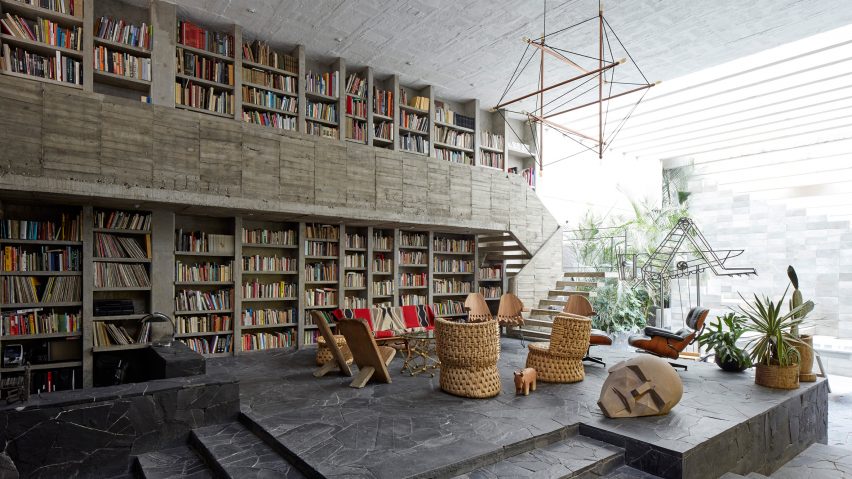
Pedro Reyes and Carla Fernandez pair rough concrete with crazy paving for their Mexico City home
The Mexico City home and studio of Mexican sculptor Pedro Reyes and his fashion-designer wife Carla Fernandez features crazy paving floors, as well as a staircase and double-height library rendered in coarse concrete.
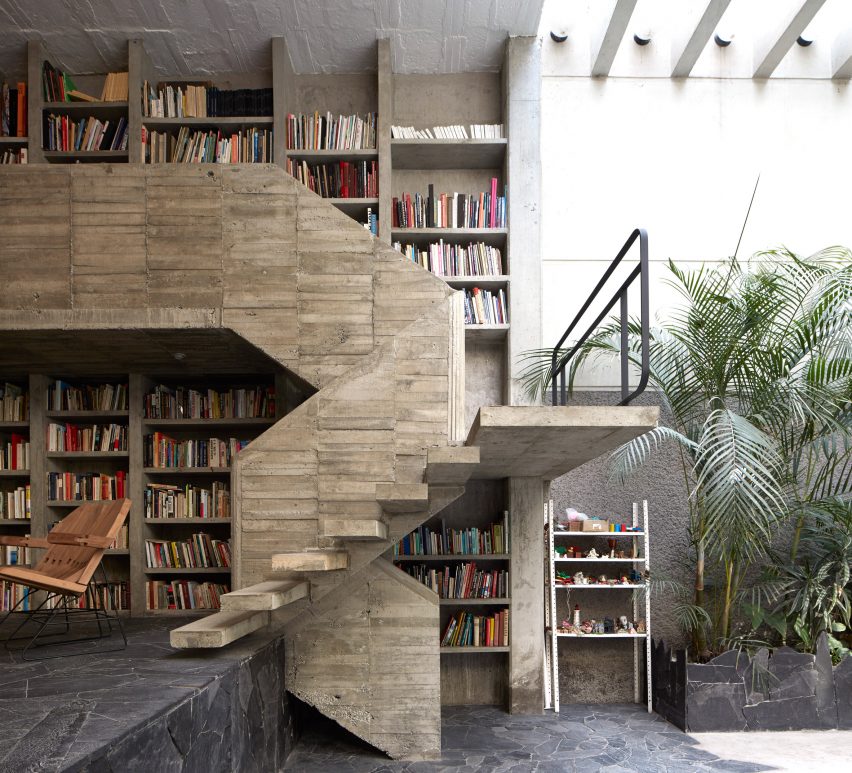
Fernandez and Reyes, who trained as an architect before moving into contemporary art, designed the house for a plot in Coyoacán – a borough in the south of the city once home to famed Mexican artist Frida Kahlo.
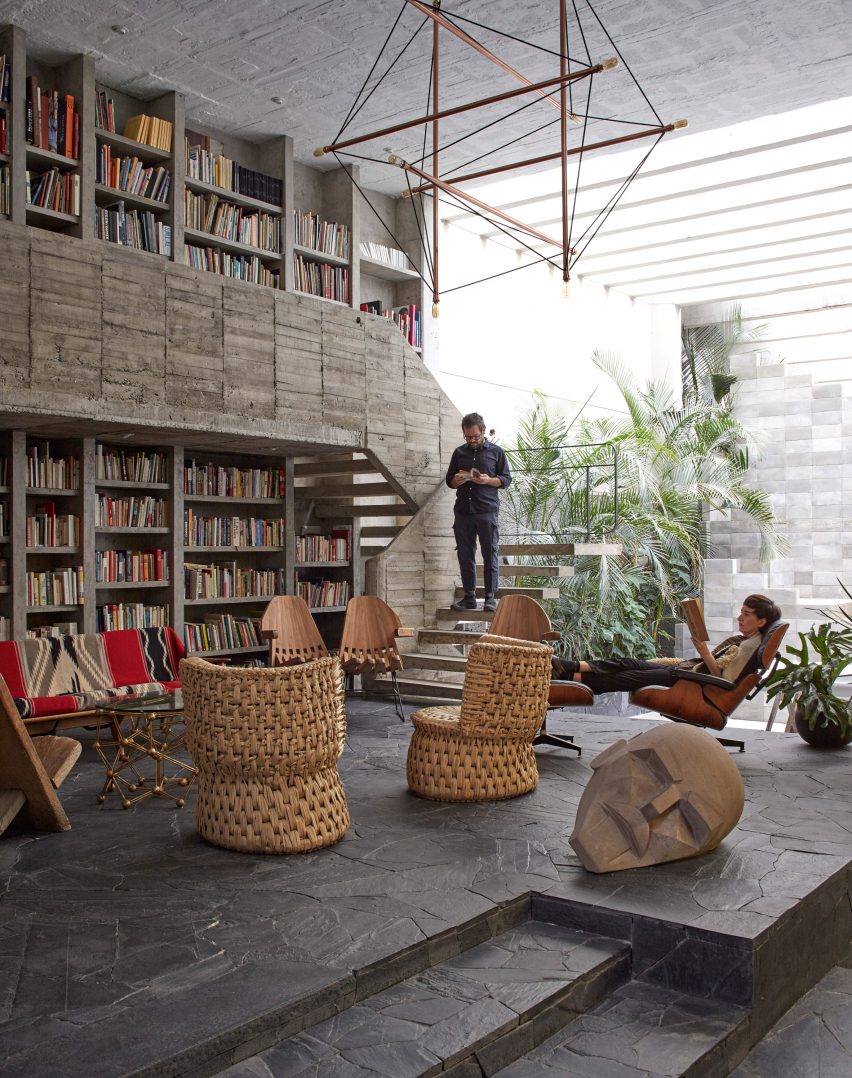
The building, named Pedro Reyes House, is made primarily from concrete, applied in varying degrees of coarseness. It provides a workplace and home for the couple and their two young children.
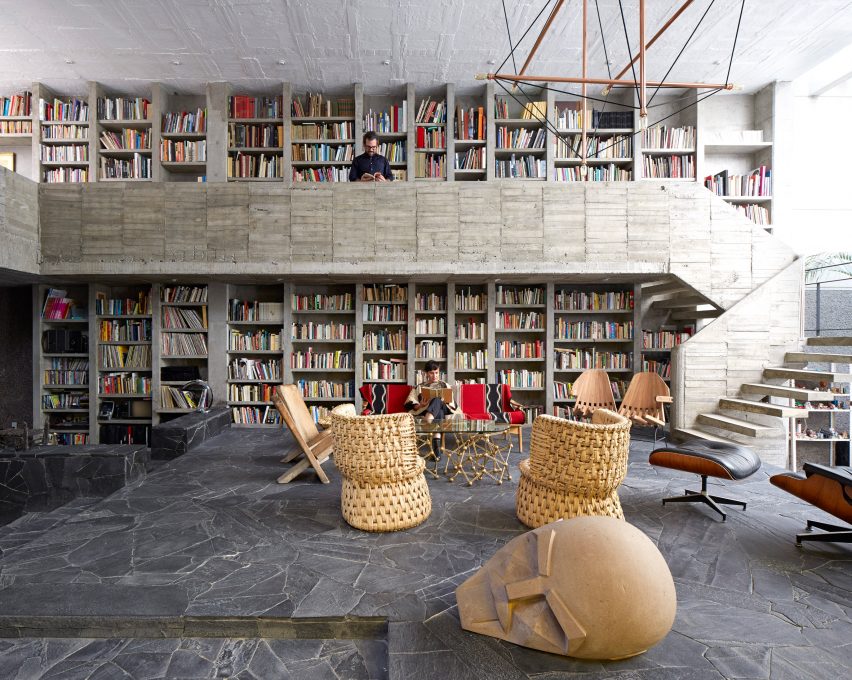
The design takes its cues from Mexico City's modernist and brutalist buildings, including examples by Luis Barragán.
While much of the concrete structure is left exposed across the interior and exterior of the house, elements are painted vermilion.
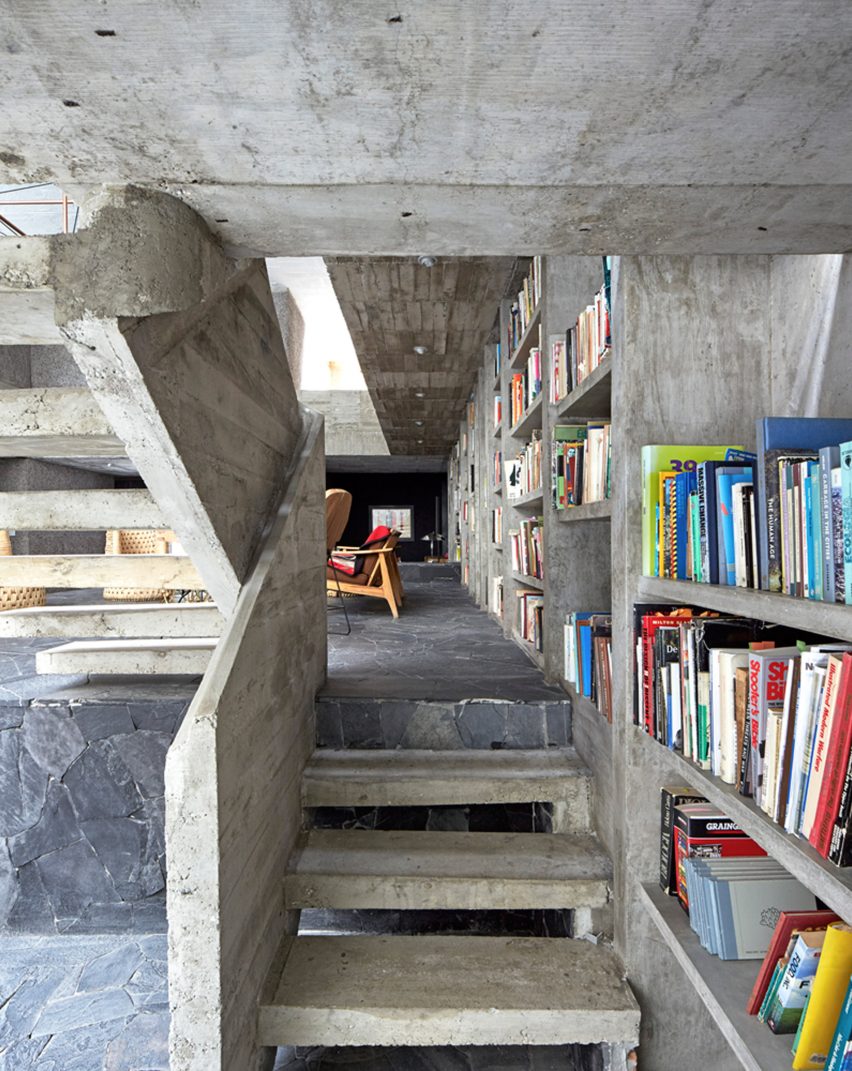
A huge bookcase from made from slabs of concrete dominates the primary living space, a double-height lounge littered with sculpture and mismatched furniture placed on a raised platform.
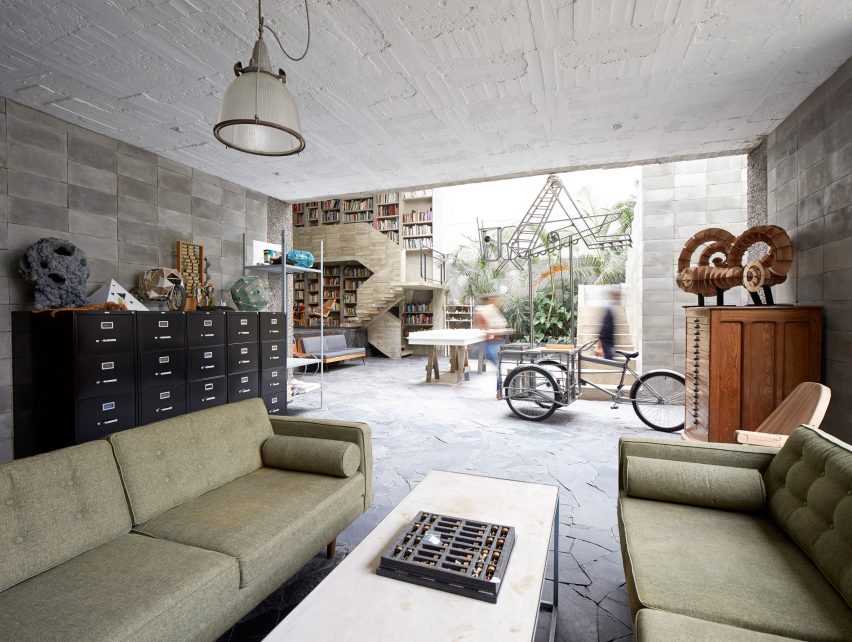
The bookcase spans one wall of the lounge and its uppermost shelves are accessed by a board-marked concrete staircase. It features cantilevering steps and leads up to a narrow gallery overlooking the lounge.
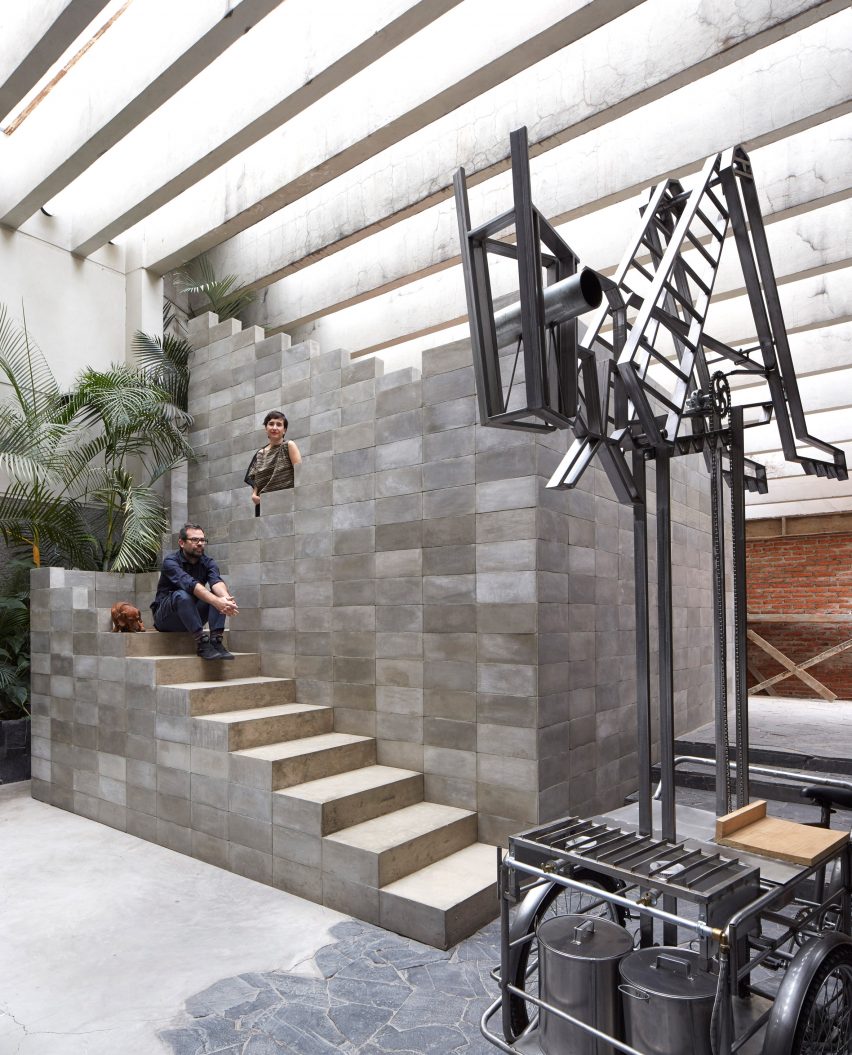
Pieces of irregularly shaped stone are pieced together to cover areas of the concrete floors in crazy paving.
The house is furnished with pieces made by the couple, including a pair of Reyes' Mano-Sillas chairs and a geodesic light fitting, as well as a mid-century classic – a black Eames Lounge chair.
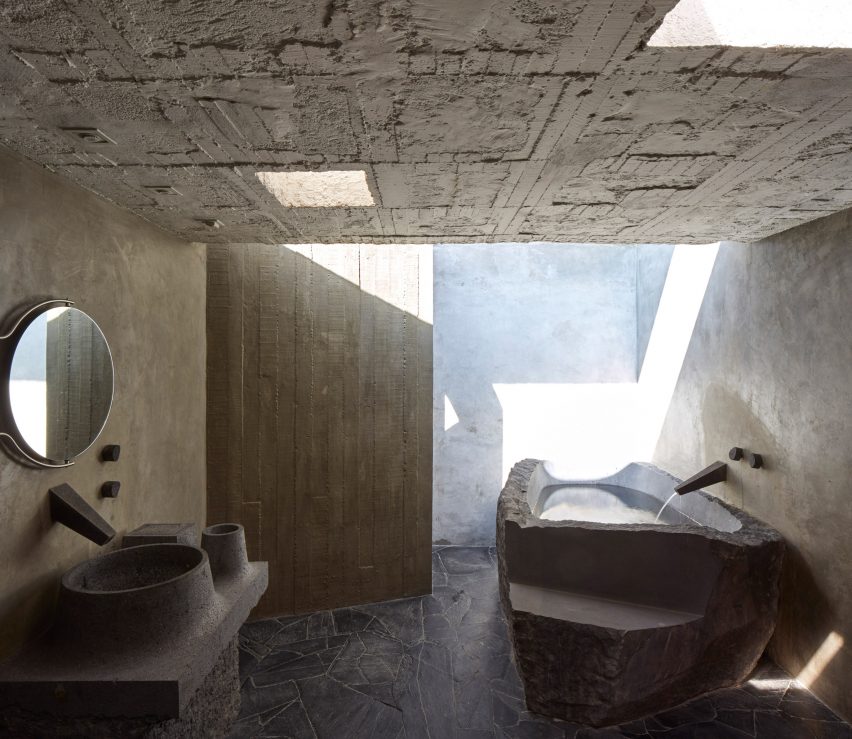
Fronds stretch up towards skylights in the ceiling and a tree grows through an atrium lined with yellow paintwork. This opening is flanked by further plant beds containing cacti.
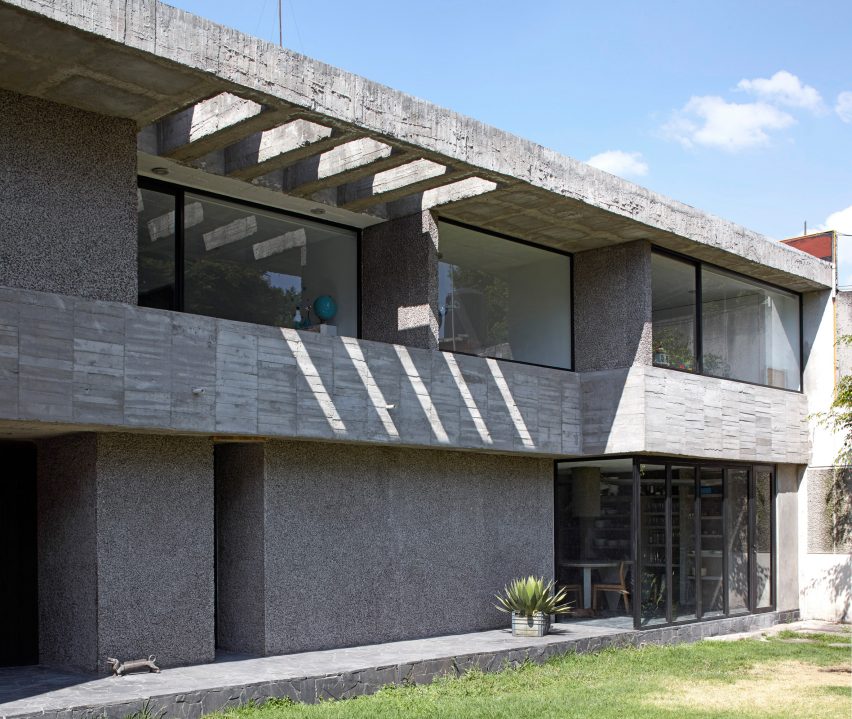
Upstairs there is a master bedroom, two children's rooms and a family bathroom.
In the bathroom, a bathtub is hewn from stone to resemble a rock pool and set below a shaft of light, while the sink is moulded into a form resembling turned pottery.
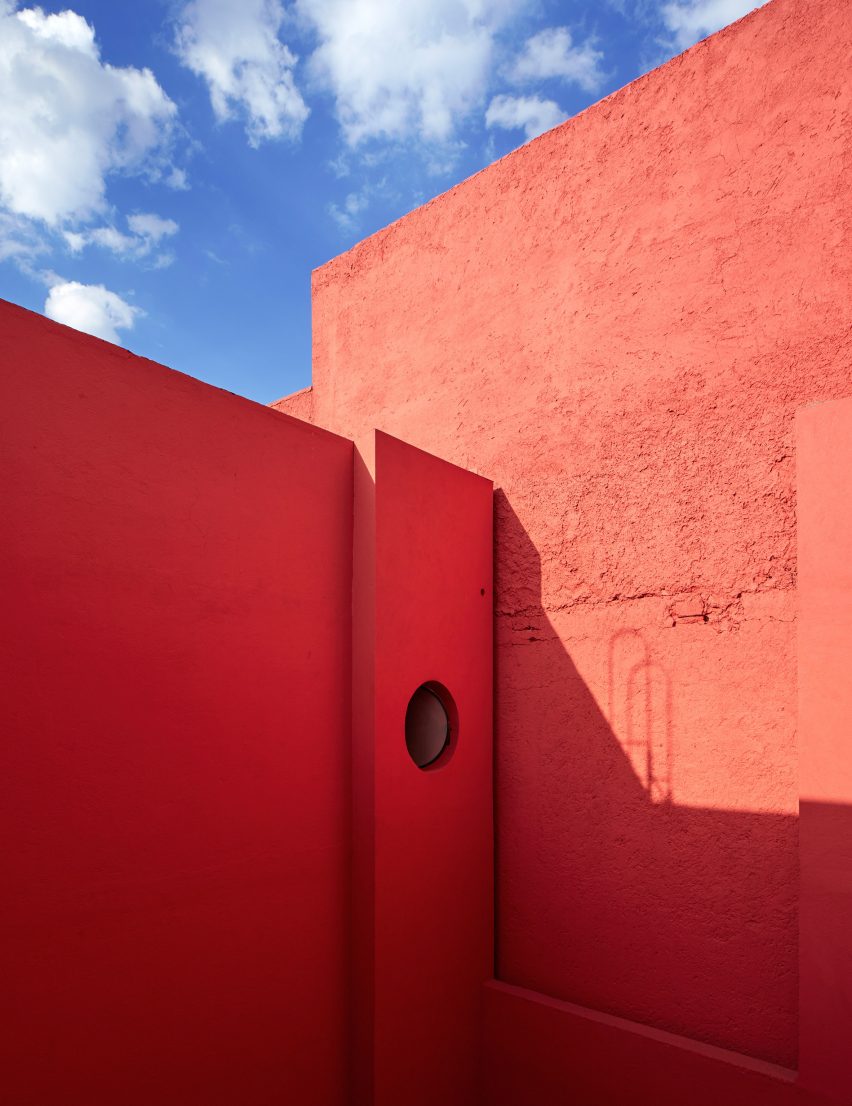
Photography is by Edmund Sumner.